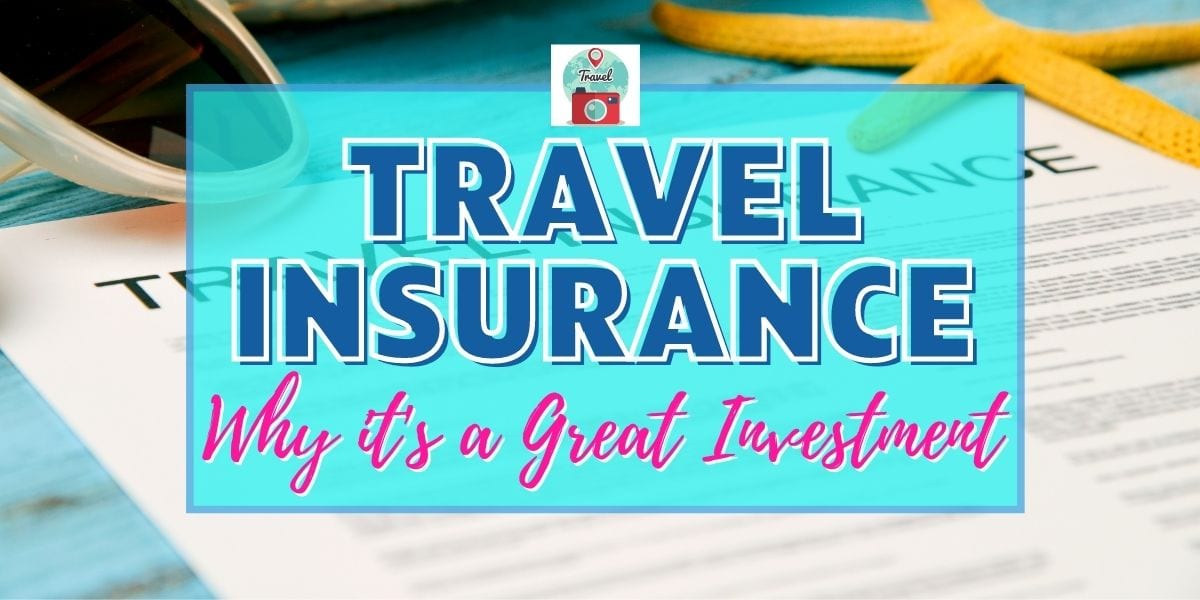Expecting the Unexpected: Why Travel Insurance Is A Great Investment
Guest Contribution by Susan Doktor
In the immortal words of Remy, the ravenous rodent hero of the Disney film Ratatouille, “The only thing predictable about life is its unpredictability.” That wise observation was never truer than it is today as we meet the unprecedented challenge of living through a global pandemic.
The travel and hospitality industries ground to a halt in the beginning months of the pandemic. The great news is that tourists are cautiously returning to the skies and enjoying the iconic landmarks and experiences they’ve dreamed of.
The bad news is that many would-be travelers had their dreams dashed—and their wallets injured—when, due to COVID-19, they were unable to embark on vacations they’d booked.
Whether by choice and out of concern for their health or because of theme park closures, cancelled flights, or problems with their accommodations, millions of families missed out on their summer vacations in 2020.
Nearly half of all summer vacations were nixed. By some estimates, 46% of vacationers lost money when they cancelled their trips, to the tune of $855 per person. We hope you weren’t one of them. But the lesson to be learned from all of this—the traveler’s corollary to Remy’s Rule—is that unpredictability can cost you money. And that’s the reason you should think about travel insurance.
In a recent study, some 40% of travelers who cancelled their vacations due to the coronavirus indicated they’d be more likely to purchase travel insurance the next time they book a trip. The more you know about travel insurance, the better equipped you’ll be to decide whether taking out a policy makes sense for you. You’ll also be well-armed to choose the best travel insurance for your needs. So let’s take a look at the various types of coverage you may want to consider purchasing.
Cancellation Coverage
Cancellation coverage is actually a category of travel insurance that includes several different types of coverage. It’s a little confusing because the first type is also called cancellation coverage.
Here’s why you might need it. No matter how much you’re looking forward to your Orlando vacation, you can probably imagine quite a few reasons you might have to—or want to—cancel it. A sudden illness affecting you or a family member. An injury that would prevent you from enjoying your vacation fully. A job loss. Or even a happy occasion—for example, your sister getting engaged, then choosing a wedding date that coincides with your vacation.
Cancellation coverage can help under these and other circumstances. When you have cancellation coverage in place, your insurer will reimburse many of the non-refundable expenses you paid when booking your trip. Depending on the policy you select, those expenses are likely to include airline tickets, hotel deposits, fees you paid for special excursions and events, and even golf course reservations.
Lots of people purchase non-refundable airline tickets because they’re often far less expensive. But cancellation coverage can help you recoup the cost of non-refundable tickets. The difference is your refund comes from your insurer and not from your airline. Policy terms differ, of course, so it’s important to understand precisely what’s covered under any policy you’re considering.
Trip Interruption Coverage
The next type of insurance you may want to consider is trip interruption coverage. It’s similar to cancellation coverage, but it kicks in should an emergency occur after your vacation is underway.
Let’s say you throw your back out while taking a monster swing at during a game of golf. It’s been known to happen! Nearly all trip interruption policies will cover you if you become seriously ill or are injured while you’re away. They’ll pay the cost of flying you home and, in some cases, the cost of flying you back when you’re feeling up to resuming your vacation. Some policies cover you for non-refundable tickets and event fees, too.
Cancel For Any Reason Insurance
Finally, there’s the Big Friendly Giant of cancellation policies: Cancel For Any Reason (CFAR) coverage.
Most travelers will never need it, but it does give you the most flexibility. Let’s put it this way: if your kid does something really bad—like cutting his little sister’s hair while she sleeps—and you want to really prove to him that actions have consequences—you could cancel your trip to Disney without paying for any consequences yourself.
With CFAR coverage you don’t have to justify your reasons for cancelling to your insurance company. If fact, you don’t need a reason at all. You just need to give 48 hours notice under most CFAR policies. Most policies only refund a percentage of the cost though.
Travel Medical Insurance
If you’re a US resident traveling to Orlando, you probably won’t need travel medical insurance. That’s because the regular health insurance you carry is portable within the United States and will cover you if you need emergency care. Most plans won’t cover you when you travel abroad, by the way, so if you like to travel internationally, it’s a good idea for you to learn about travel medical insurance anyway!
Now if you live outside the US and you’re traveling to Orlando, travel medical insurance is something you should consider seriously. In fact, we’d go as far to say, an overseas visitor shouldn’t even consider traveling to the USA without medical insurance.
There’s a chance your regular insurance will not cover you should you need medical care while you’re vacationing in the US. Medical care is very expensive here and individuals, not the government, are responsible for paying their own medical bills.
I know, that’s a foreign concept to many international visitors. But even a single trip to an American emergency room for a minor injury can cost thousands of dollars. That’s why you should make it a point to find out whether your insurance—whether it’s private or government-sponsored—will pay your bills if you need medical care on US soil.
Most travel medical policies offer broad coverage and include diagnostic services, hospitalization, surgery, prescription medicines, and more. Make sure you declare ALL medical issues you have though.
The Cost of Travel Insurance
As a percentage of the cost of your trip, a travel insurance policy is a relatively small investment. Most travelers pay between 4% and 8% for comprehensive coverage, which often includes auto and baggage insurance in addition to cancellation and medical.
CFAR policies come with a heftier price tag and may add $100 or more to your policy premium if you choose to go that route. And the payout is generally only a percentage. But it’s the only policy that will cover your for virtually anything.
Travel Insurance Coverage During COVID-19
It’s a pretty fair bet that cancellation coverage is the kind of insurance many grounded travelers wished they’d had when the global pandemic erupted. But the truth is, the travel insurance industry, which was overwhelmed by cancellation claims, chose to deny many of them that could be linked to COVID-19.
Facing financial devastation, they argued that pandemics weren’t covered under their policies. Their position angered policyholders and rightfully so. But now, responding to consumer sentiment, many insurers are re-writing their policies to cover trips cancelled due to health threats like the pandemic.
Some policies include the need to quarantine among valid reasons to cancel a trip. But once again, it’s important to read any policy you’re considering very carefully to be sure you understand what’s covered and what’s not before you pay for it. Many consumer complaints about travel insurance can be traced back to the misconceptions they had about their actual policy terms.
A Special Note to Parents
How many nights do you suppose your kids smiled themselves to sleep imagining a trip to Disney World? “They say if you dream a thing more than once, it’s sure to come true,” opined Ratatouille’s Remy. Remy, of course, was an optimist. But as a parent, you know that often it’s best to be a pragmatist. If, like many parents, you consider making your kids’ dreams come true a solemn responsibility, taking precautions—and taking out a travel insurance policy—might be the best move you can make before booking your Orlando vacation.
Author Bio:
Susan Doktor is a journalist and business strategist who hails from New York City. She writes on a wide range of topics including finance, travel, fitness, and family life. Follow her on Twitter @branddoktor.


